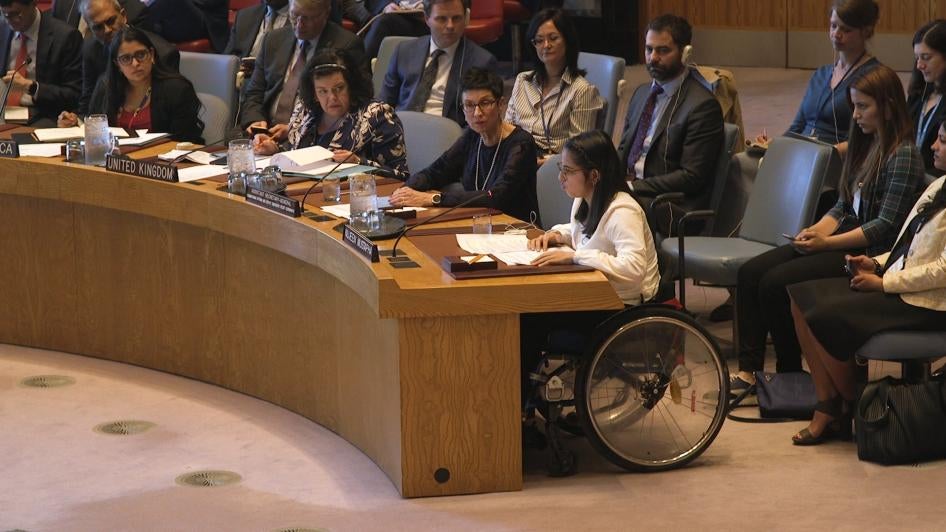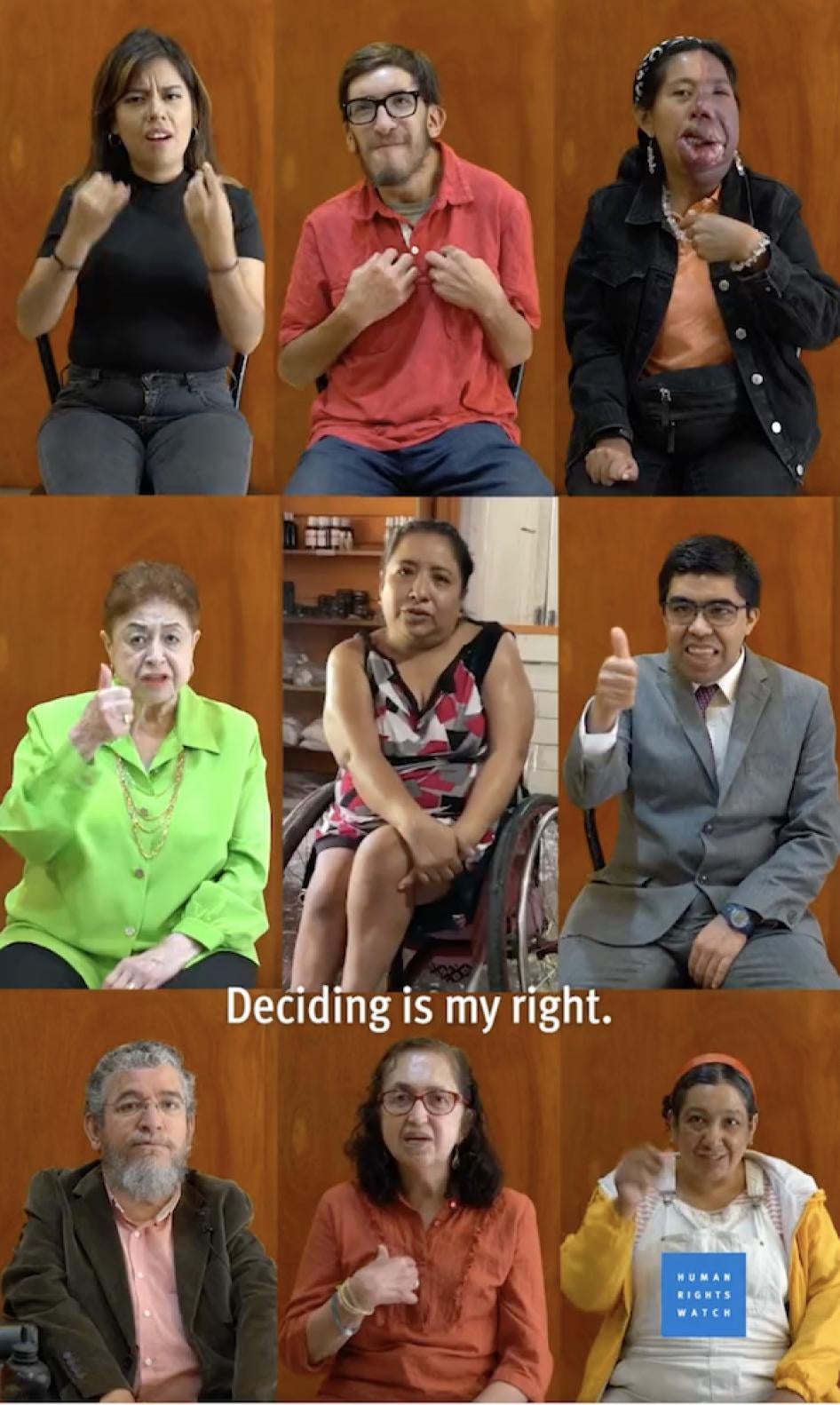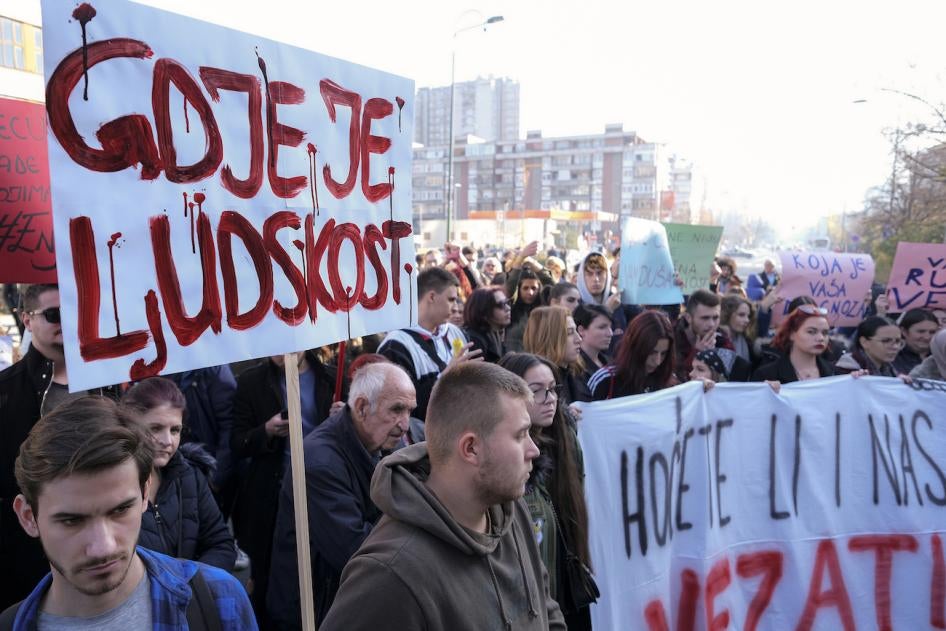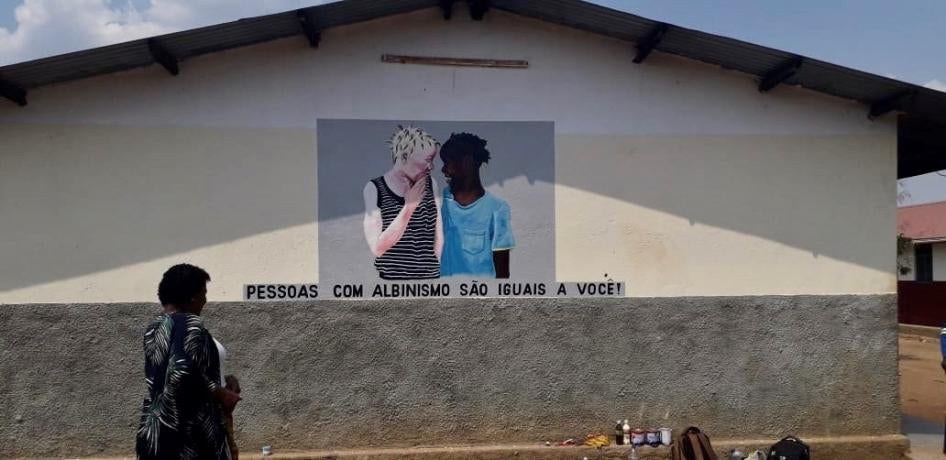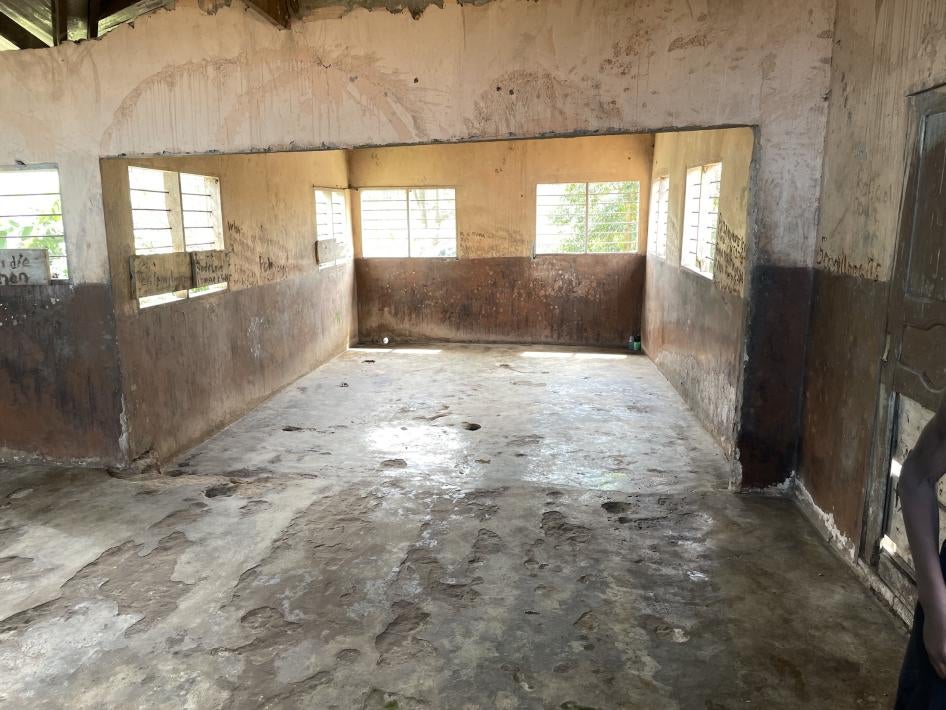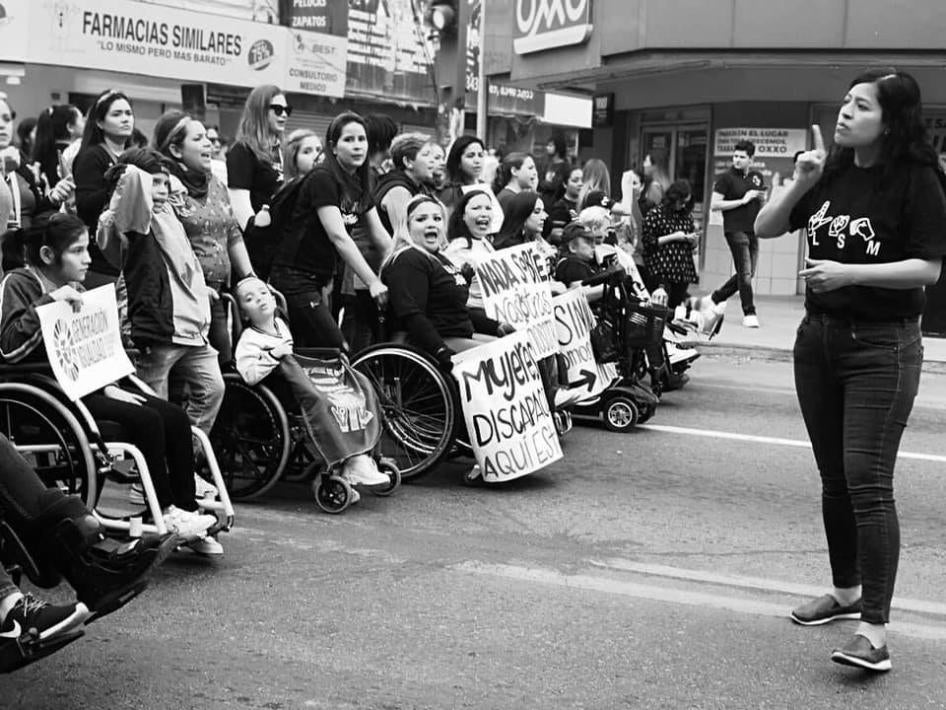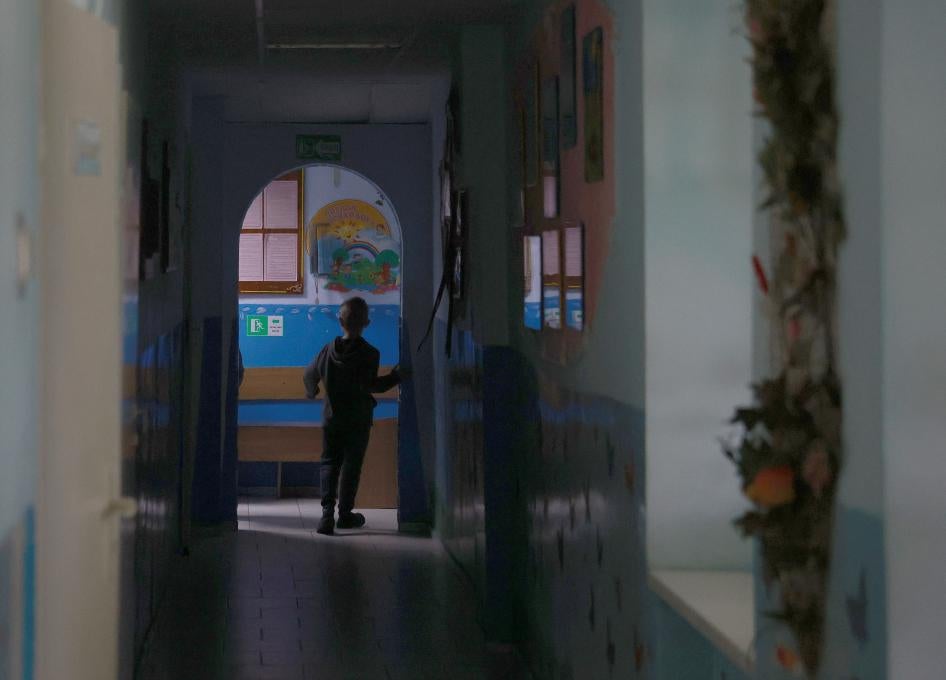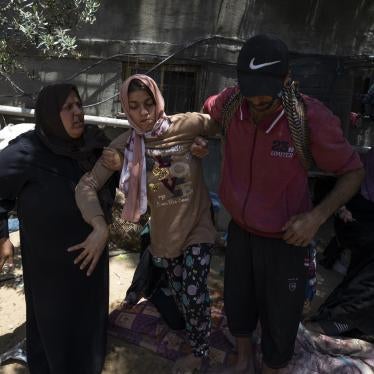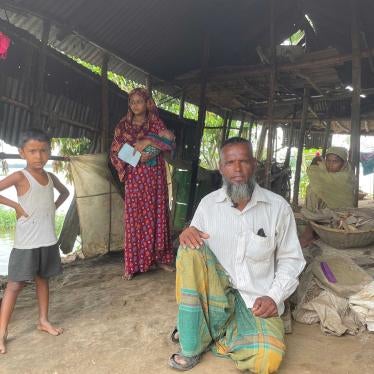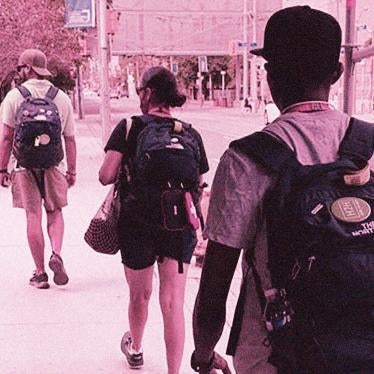Worldwide more than one billion individuals have a disability. In many countries around the world, people with disabilities face countless abuses: they are denied an education, languish for years in institutions, are subjected to horrific violence, or tied up in their own homes - simply because they have a disability. This is often because of entrenched stigma, outdated laws and a lack of community-based services essential to ensuring their rights, as laid out in the United Nations Convention on the Rights of Persons with Disabilities.
In 2013, Human Rights Watch became the world’s first international human rights organization to create a dedicated team to investigate and expose these hidden abuses, and advocate for change together with people with disabilities and their organizations. We’ve expanded this work to include the rights of older people, given that millions around the world experience ageism and abuse every day. We are guided by the principle: “Nothing about us without us”, amplifying the voices of those most impacted by human rights violations.
To mark the 10th anniversary of our Disability Rights Division, we are publishing a series of dispatches on a range of topics to advance the rights of people with disabilities and older people.
Lessons from Judy: A Decade in Disability Rights
by Shantha Rau Barriga
Judy Heumann, who passed away in March, was a pioneer in the disability rights movement. A member of Human Rights Watch’s Board of Directors, she reminded us that disability is the one family anyone can join at any time. Judy emphasized the importance of empowering people with disabilities to be agents of change, transforming communities and attitudes. Judy was a teacher, and as we mark 10 years of HRW's Disability Rights Division, which Judy heavily influenced, we reflect on one of the many lessons she gave us was: Demand what you believe in.
Another Hot Summer for People with Disabilities in Spain
by Jonas Bull
Extreme heat, worsening every year because of the climate crisis, is a disaster for many people with disabilities around the world. In Spain, where we have previously documented how heat impacts the physical and mental health of people with disabilities, another long, hot summer is causing particular hardships yet again.
Bosnia and Herzegovina Should Stop Institutionalizing People with Disabilities
by Emina Ćerimović
The government of Bosnia and Herzegovina recently missed another opportunity to address a root cause of serious abuse in the country: the practice of placing people with disabilities in institutions. We have long documented how warehousing people with disabilities in institutions creates conditions that can lead to horrific abuses, including neglect, inhuman treatment, and physical violence; a cycle unfortunately replicated around the world.
Breaking Educational Barriers for Children with Albinism
by Samer Muscati
Children with albinism in Mozambique continue to face formidable barriers in their pursuit of an education. Years ago we met Josina, a girl from Mozambique's Tete province, whose journey exemplifies both the resilience of children with albinism and the collective effort required to create change.
On the Road to Abolishing Immigration Detention in Canada
by Hanna Gros
Every year, Canadian authorities detain thousands of people in immigration detention, including refugee claimants, children, and people with disabilities. But there is hope. Since July 2022, eight of Canada’s ten provinces have terminated their immigration detention contracts with the federal government, which allowed the Canada Border Services Agency to incarcerate immigration detainees in provincial jails.
Chained, Locked Up, and Abused … Because of a Disability
by Kriti Sharma
Hundreds of thousands of men, women, and children – some as young as 10 – have experienced being shackled in over 60 countries around the world. Banning shackling would be an important first step to combat stigma associated with mental health, and develop quality, accessible, and affordable community-based support services.
A Path to Belonging for People with Psychosocial Disabilities in Ghana
by Elizabeth Kamundia
"I first met Pamela in a spiritual healing center, known as a 'prayer camp,' during my first visit to Ghana in November 2022. She was locked up in what looked like a prison cell, where she had been for more than a year on the basis of her real or perceived mental health condition...[she] needs the Ghanaian government to recognize her inherent worth in practice, not just under law."
Protect Women with Disabilities from Violence in Mexico
by Carlos Ríos Espinosa
In 2020, Human Rights Watch documented the many ways in which people with disabilities in Mexico face severe abuse and neglect by their families with little protection or support from the government. Now, after an important reform was signed into law, there are reasons for hope.
EU Commission Highlights Disability Rights in Ukraine
by Karolina Kozik
The Ukrainian government has an opportunity to take bold action to demonstrate its commitment to human rights and make sure people with disabilities are no longer locked away behind closed doors. It should work closely with local groups of people with disabilities to prevent abuse and remove barriers to their full inclusion in society.
75 Years since Universal Declaration, UN Still Failing Older People
By Bridget Sleap
December 10 is the anniversary of the adoption of the Universal Declaration of Human Rights (UDHR). For older people, however, the declaration’s promises remain elusive: seventy-five years ago, the drafters of the UDHR did not explicitly include age as a prohibited ground for discrimination. Since then, population ageing has become a global megatrend, ageism is beginning to get the recognition it deserves, and there is greater awareness that older people’s rights need better protection under international law. A new international convention on the rights of older people would provide the bedrock of that protection.
